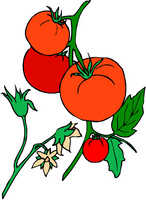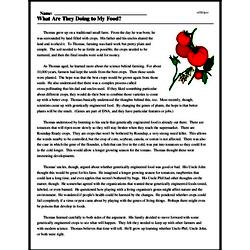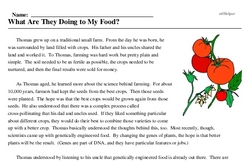What Are They Doing to My Food?
Thomas grew up on a traditional small farm. From the day he was born, he was surrounded by land filled with crops. His father and his uncles shared the land and worked it. To Thomas, farming was hard work but pretty plain and simple. The soil needed to be as fertile as possible, the crops needed to be nurtured, and then the final results were sold for money.
As Thomas aged, he learned more about the science behind farming. For about 10,000 years, farmers had kept the seeds from the best crops. Then those seeds were planted. The hope was that the best crops would be grown again from those seeds. He also understood that there was a complex process called cross-pollinating that his dad and uncles used. If they liked something particular about different crops, they would do their best to combine those varieties to come up with a better crop. Thomas basically understood the thoughts behind this, too. Most recently, though, scientists came up with genetically engineered food. By changing the genes of plants, the hope is that better plants will be the result. (Genes are part of DNA, and they have particular features or jobs.)
Thomas understood by listening to his uncle that genetically engineered food is already out there. There are tomatoes that will ripen more slowly so they will stay fresher when they reach the supermarket. There are Roundup Ready crops. They are crops that won't be bothered by Roundup, a very strong weed killer. This allows the weeds nearby to be controlled, but the crop of corn, soybean, canola, or cotton is not affected. There was also the case in which the gene of the flounder, a fish that can live in the cold, was put into tomatoes so they could live in the cold longer. This would allow a longer growing season for the tomato. Thomas thought these were interesting developments.




